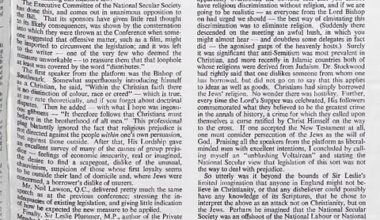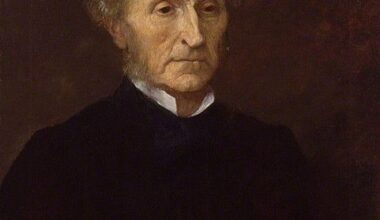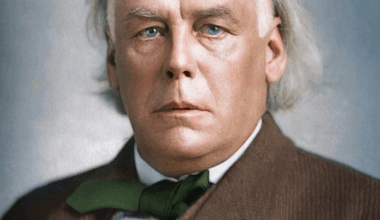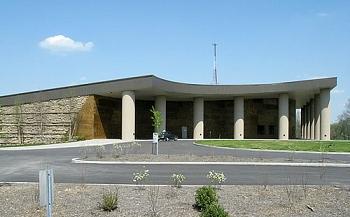To celebrate the beginning of Hajj (the annual Islamic pilgrimage to Mecca), here is the first in a semi-regular series from Jalal Tagreeb in which he relates how, through being exposed to the flaws in Islamic apologetics during debates with nonbelievers, he left Islam and became a freethinker. Other instalments in the series can be found here.

I can still remember the scent of my morning coffee wafting through the air during my first Ramadan as an ex-Muslim. This was a milestone for me. Never could I have anticipated that I would one day be an apostate, enjoying coffee during the holiest of months. Raised as a devout Sunni Muslim in the Levant, I staunchly rejected anything Western or non-Islamic. I meticulously avoided walking past or even glancing at churches. I would not even look at food or drink deemed inappropriate for a practising Muslim. I was akin to a prized Arabian horse, brimming with zeal to debate non-Muslims, to perform what Islam calls jihad by word (or tongue or debate). Subdued by Islam, at its beck and call whenever I was required, I would be summoned to ride out and humiliate the enemies of the faith in argument.
Jihad in Islam takes many forms, and during my time as a Muslim apologist, I championed the concept of jihad in the form of debates (jihad by word), as it aligned with my expertise. I firmly believed that jihad, in its myriad forms, made us Muslims the most steadfast in faith. Surrender was inconceivable. I spent two decades preparing for debates with nonbelievers and I planned to document their defeats to demonstrate the superiority of Islam. I would become a hero for the faith. However, little did I know that I was riding towards my decisive defeat rather than to ultimate victory over the infidels.
One debate in particular stands out: an individual known as a secularist on Reddit reached out to me to debate the alleged scientific miracles of the Quran. This was a topic that consumed my thoughts, and I gladly accepted.
In our exchange, the secularist and I delved into the intricacies of these purported miracles, a subject that has garnered much attention and debate within and beyond Islamic circles. The secularist and I engaged in a cordial debate, dissecting each claim of scientific miracles presented in the Quran. However, it became evident that these miracles crumbled under scrutiny. Each alleged miracle appeared to unravel upon closer examination, and I was exposed to numerous flaws in interpretation, scientific accuracy, and historical context. I became beset with doubts and uncertainties. I was, in this and many other debates, unhorsed. Even to what I considered unanswerable points, my secular adversaries provided simple and devastating critiques. My feeling of invincibility was completely shattered, as was my faith in Islam.
Reflecting on that conversation about scientific miracles, I feel compelled to share some insights and strategies gleaned from my years of grappling with this contentious issue—insights which can also, I believe, be applied more broadly in dealing with Islamic apologetics in general:
- Approach with Scepticism: When encountering claims of scientific miracles in the Quran, it is imperative to maintain a sceptical mindset. Often, apologists impose modern scientific understandings onto ancient texts, disregarding the historical and cultural contexts in which the texts were written. By consulting classical commentaries and scholarly interpretations, we can gain a clearer understanding of the intended meanings of Quranic verses.
- Verify Scientific Accuracy: Many of the purported scientific miracles in the Quran are put forward by individuals lacking scientific expertise. It is vital to fact-check their claims by consulting reputable scientific sources. Blind acceptance of unverified assertions perpetuates misinformation and hinders genuine intellectual enquiry.
- Consider Historical Precedence: Before attributing miraculous knowledge to the Quran, it is essential to consider the scientific knowledge available to past civilizations. Many scientific concepts mentioned in the Quran were already known to ancient peoples, rendering them less miraculous and more reflective of the prevailing scientific understanding of the time.
- Scrutinise Linguistic Claims: Claims of linguistic miracles often hinge on reinterpretations of Arabic words and phrases. To evaluate these assertions, one must consult academic lexical sources and linguistic experts. Misinterpretations and mistranslations can lead to erroneous conclusions, undermining the credibility of alleged miracles.
My secularist opponent and I publicly shared our conversation to shed light on the fallacies of blind faith and the importance of critical enquiry. My transition from staunch defender to sceptical observer of Islam serves as a reminder of the transformative power of intellectual honesty. I find myself not only liberated from the confines of dogma but also enriched by the pursuit of truth. Our quest for enlightenment and understanding continues.
Below is an edited excerpt of the transcript of the scientific miracles debate.
Scientific miracles in the Quran? A debate
Jalal: But what about verses that contain numerical miracles and also scientific miracles? There are well-edited rigorous books about them. I mean Muslim scholars from scientific backgrounds have written these books. See this one on the position of stars: 56:75-76. The verse says: ‘I swear by the positions of the stars—and this is indeed a mighty oath, if only you knew.’ According to physics, this is a very accurate statement because the star could have exploded and the light travelling from it is what you see. It takes many light years to reach you, so what you actually see is the position of the star and not the star itself, although it could be there—but a more accurate statement is to refer to the position of the star.
Secularist: I don’t find it convincing at all. There are actually so many problems with this. First, the cosmological understanding given by the Quran and hadith themselves is one of a flat Earth with a dome sky. This can be shown in so many places, and the tafsirs [exegeses of the Quran] confirm it. The stars still have a ‘position’ within such a system, and there is absolutely nothing in the text to indicate that anything other than this was intended. Remember, the Quran thinks stars are ‘lamps’ small enough to hurl at a disobedient jinn. This fits way better when you think that stars are just tiny lights and are unaware that in reality they are gigantic suns like the one at the centre of the Solar System.
Second, the idea that we observe the position of the star in the night sky is not even an accurate statement according to physics. Think about it: what we see is only the apparent position of the star, not the actual position. We have been viewing points of light from a very long time ago, but because of processional shifting, the proper motion of stars relative to each other, and atmospheric refraction, etc., the apparent position of the star may very well not be where its position actually is.
Lastly, why does Allah make oaths on created things? In my opinion, this is bad theology and also makes no sense. With an oath, you are supposed to swear by something greater than you because the greatness of the thing is meant to supply for the lack of confidence the person has in you. But God is an infinite being. What are the stars, figs, camels, etc., before Being Itself? Nothing—less than dust. Indeed, any created thing is nothing compared to God. Therefore, God should swear by Himself as He does in the Bible. What we have in the Quran is just nice flowery words that don’t actually mean much.
Jalal: For the second point, the beam that you are referring to is what the Quran calls the apparent location as seen by the human eye, as you said. The actual location is what the Quran refers to by saying ‘stars’ in that context, so your second argument is supportive to the Quranic interpretation. Everything in this universe is in motion.
Secularist: You said that what we see is the star’s position. But what we see may not be the star’s position. In any case, I do not accept that the mere mention of the ‘positions’ of the stars is in any way miraculous as even in a flat Earth model the stars have a position. Further, almost all ancient people studied the changing positions of the stars and had developed complicated systems of astrology and mythology about these. They already knew about the procession of constellations over time and could predict the movements of certain stars. They actually had a lot of information. On the contrary, I do not find the mere mention that the stars have a position to be impressive at all. Anyone who visually sees a star knows it has a position, even if they do not know what a star is. So, it need not even be a scientifically accurate statement.
That was just a taste of the many defeats I suffered at the hands of this and other nonbelievers. Before, I was a devout Muslim, extremely strict, for example, about haram food: always avoiding touching it, avoiding even being near it or looking at it, and avoiding any food or drink that might contain even microscopic haram ingredients. In fact, my family and I took great pride that I was the only person in my family who had never ever tasted this type of food or drink—not even by accident.
But my record achievements in adhering to Islam were broken following my defeat in many debates. All concepts of faith fell away from me, and so adhering to Islamic practices came to mean nothing to me. I can still fast during Ramadan if I like—but these days I would only do it to lose weight!
Jalal’s ‘statement of defeat’ by secularists in debate can be found here.
Further reading
‘The best way to combat bad speech is with good speech’ – interview with Maryam Namazie, by Emma Park
Surviving Ramadan: An ex-Muslim’s journey in Pakistan’s religious landscape, by Azad
Breaking the silence: Pakistani ex-Muslims find a voice on social media, by Tehreem Azeem
From religious orthodoxy to free thought, by Tehreem Azeem
Mind Your Ramadan! by Khadija Khan
Britain’s liberal imam: Interview with Taj Hargey, by Emma Park
The need to rekindle irreverence for Islam in Muslim thought, by Kunwar Khuldune Shahid








1 comment
This piece reinforces something I read by Ibn Warraq years ago. If someone has a link to the original source, please help me out, but here is a paraphrase:
Islam lacks the one man and one book that took down Christianity – Spinoza and his Theological-Political Treatise (1670).
Your email address will not be published. Comments are subject to our Community Guidelines. Required fields are marked *
Donate